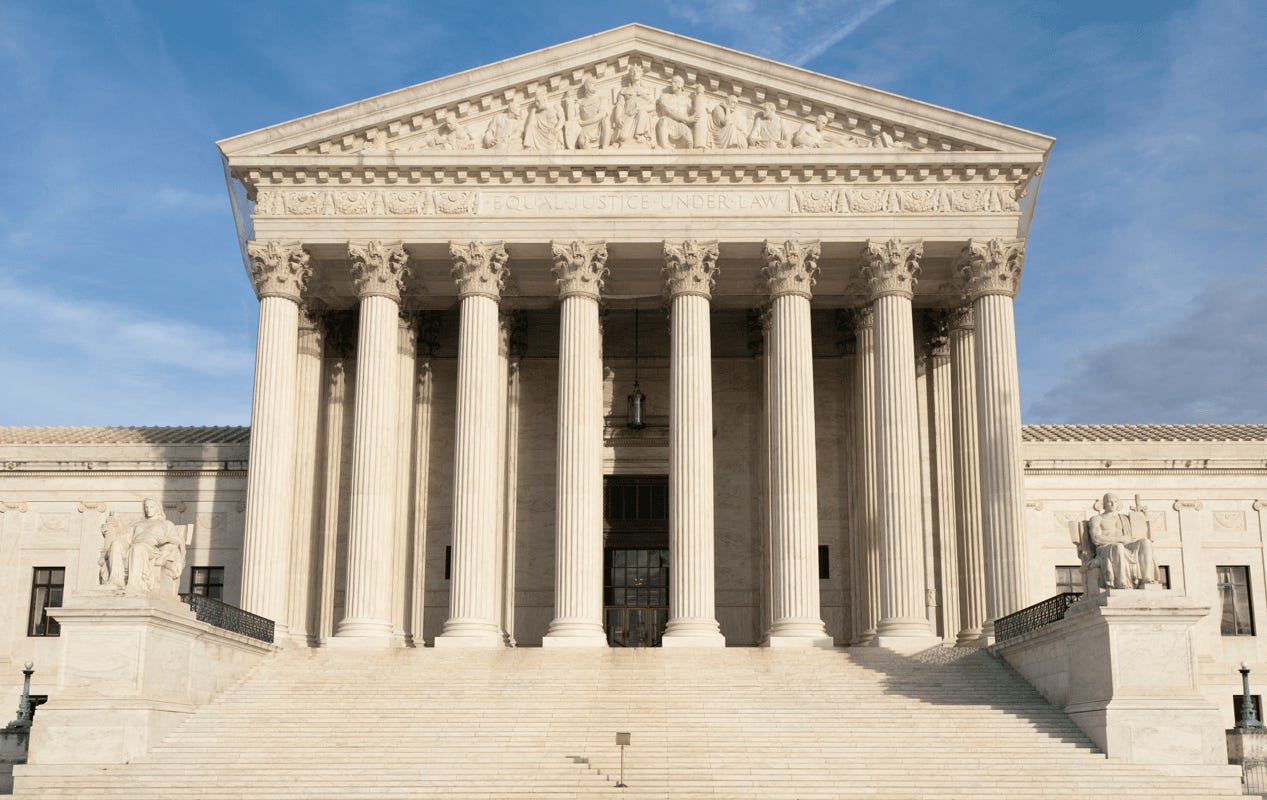SCOTUS Ends "Regulators-R-Us" Era: The Death of ‘Chevron Deference’
The era of Deep State agencies and regulators twisting laws to expand their own authority without clear legislative backing is over. It's a victory for accountability & transparency for America! 🇺🇸
In a monumental and groundbreaking decision that could reshape the landscape of American governance, the U.S. Supreme Court (SCOTUS) has ruled in favor of Loper Bright Enterprises, Inc. v. Raimondo, effectively dismantling the long-standing Chevron deference. Stemming from the 1984 case Chevron v. Natural Resources Defense Council, this doctrine allowed federal administrative agencies (aka the “Deep State”) significant leeway in interpreting ambiguous statutes, effectively giving unelected bureaucrats the power to create and interpret regulations with minimal judicial oversight.
The core of the Chevron decision allowed federal agencies to “fill in the details” when laws weren’t crystal clear. Since then, the FDA, EPA, IRS, and the rest of the alphabet agencies have been doing a lot of “filling in” – but conveniently in ways that benefit the government and leave citizens picking up the tab. The Loper ruling is a significant victory against the unchecked power of the “Deep State” and fundamentally reshapes the balance of power between federal agencies and the judiciary.
Specifically, the Loper case challenged the National Marine Fisheries Service's (NMFS) requirement that the fishing industry fund federal monitors, a mandate not explicitly stated in the Magnuson-Stevens Fishery Conservation and Management Act. In other words, fishermen were forced to pay for their own monitoring. The NMFS basically told fishermen, "Pay up for your own babysitters!"
In a resounding 6-3 slapdown, SCOTUS threw out the NMFS's power trip, waving goodbye to Chevron deference. Chief Justice Roberts delivered the majority opinion, with Justices Thomas, Alito, Gorsuch, Kavanaugh, and Barrett joining. And of course, cue the predictable dissent from the far-left trio of Justices Kagan, Sotomayor, and Jackson.
The implications of this decision are monumental. Since 1984, Chevron deference has given unchecked power to agencies like the FDA, EPA, FAA, and CDC, allowing them to craft significant policy decisions without direct congressional oversight. It could have been called the "Regulators-R-Us" rule because it let alphabet agencies play judge, jury, and sometimes even executioner on what rules to follow and which ones they could conveniently ignore. Kind of like letting the fox guard the henhouse and then asking if he's been eating chicken. For nearly four decades, they've had a field day interpreting laws as if they wrote them, all while everyday folks wonder if anyone's actually reading the fine print.
This unchecked power has led to many controversial regulations, impacting everything from public health to environmental standards. Take the FDA's approval of Vioxx, which led to hundreds of thousands of deaths before it was finally pulled from the market, or the approval of the diet drug Fen-Phen, which caused severe heart valve damage and pulmonary hypertension. Add to this the CDC's inconsistent and often contradictory guidelines during the COVID-19 pandemic, and it's clear these agencies have often advanced their agendas at the expense of public welfare.
And let’s not overlook the Federal Aviation Administration (FAA), responsible for air safety, overseen by Secretary Pete Buttigieg's Department of Transportation. Earlier this year, they rolled out a new "Diversity and Inclusion" initiative that aims to hire more “gays, lesbians and bisexuals” as well as people with "severe intellectual disability" and "psychiatric disability," among other disabilities, to work with the FAA. Because clearly, when it comes to ensuring air safety, the top priority should be checking off every box on the diversity checklist rather than, you know, making sure employees are qualified to keep planes in the sky.
Hey, FAA, here's a wild idea: maybe focus on hiring people who can actually keep planes from falling out of the sky instead of obsessing over whether your hires check off the right diversity boxes. Competence should be the priority—it's not too much to ask that the folks responsible for air safety know what they're doing. Let's ensure they can handle turbulence, not just social justice buzzwords. Let's prioritize skill over virtue signaling. Because nothing screams "air safety" like entrusting air traffic control to a blind, schizophrenic bisexual with an IQ of 80.
While the FAA's diversity push might not be the textbook case of Chevron deference in action, it perfectly illustrates why unchecked regulatory power is a bad idea. This historic SCOTUS decision marks the end of the "Regulators-R-Us" era, where agencies had the unchecked power to interpret laws to their own benefit. By ruling in favor of Loper and dismantling the long-standing Chevron deference, SCOTUS has taken a significant step towards reigning in Deep State overreach and restoring balance and accountability in American governance.
This decision is not just a victory for proponents of limited government and the rule of law; it reaffirms the core principles of the American Republic. The era of Deep State agencies and regulators twisting laws to expand their own authority without clear legislative backing is over. It's a victory for accountability, transparency, and, ultimately, the American people. The days of bureaucrats playing judge, jury, and executioner are over.
And it's about time…
Here are a few brief video reactions to this SCOTUS decision:
Here is a list of agencies who were part of the “4th Branch of Government” which are not elected and have no oversight by “We the People”









We can clean up the “ food “ now? Europeans don’t get poisoned every meal like in America.
Thankfully the judges ruled in favor of the majority of Americans.